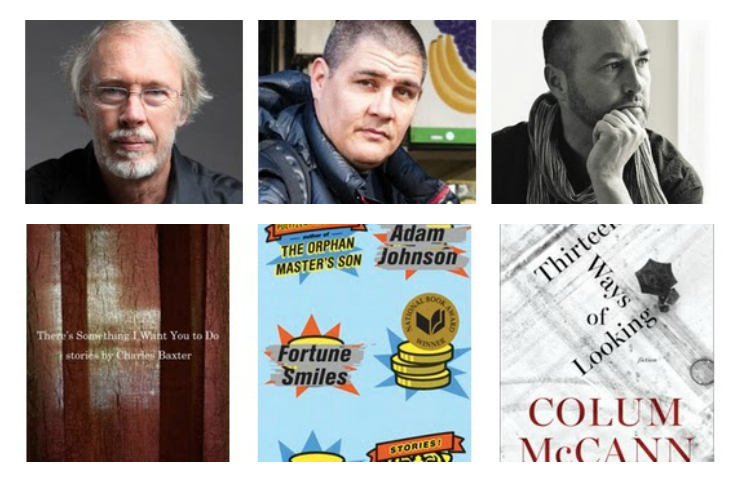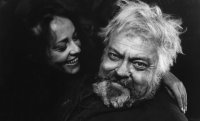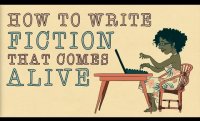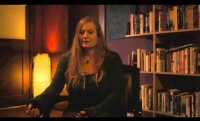Joseph Langdon was born and raised in West Chester, Pennsylvania. He earned his BA in English from Vassar College in Poughkeepsie, New York, and his MFA in Creative Writing from the University of Nevada, Las Vegas (UNLV). He has worked as a newspaper reporter, features writer, and columnist. During the 2010 election cycle, he served as a communications director and speechwriter on a U.S. Senate campaign. His work has appeared in the anthology Lost and Found in Las Vegas (Huntington Press, 2014) and the handmade zine the Salted Lash. He is currently the assistant director of the Beverly Rogers, Carol C. Harter Black Mountain Institute at UNLV and managing editor of Witness.

I was at work when I got a call from Bonnie Rose Marcus at Poets & Writers. This wasn’t really out of the ordinary; I work at a literary institute so I assumed it was an advertising call. It took me a moment to realize she was calling for Joseph Langdon, individual—nay, writer—not Joseph Langdon, office functionary. And she was calling to tell me that I—Joseph Langdon, writer—had won the Maureen Egen Writers Exchange Award. I was speechless. Because I had no idea what she was talking about. I don’t submit to anything. Not yet. Not ready. In fact, I’d just been insisting on that point to a friend who was prodding me to send out work. I wondered: Could they have submitted something on my behalf?
And then I noticed the date: April 1. Well, well. I didn’t know who this “Bonnie Rose Marcus” from “Poets & Writers” really was, but this was a bit beyond the pale for an April Fools’ Day joke—and I was just about to say so when it clicked. Of course! I suddenly remembered all about the prize. It was open to Nevada that year only, so I decided to suck it up and submit. Then I blocked it out of my mind. After all, I never figured I might win the thing.

As it turns out, Bonnie is indeed a real person, and a tremendous guide to New York and the publishing world. Each morning, I partook of the Library Hotel breakfast spread (and their glorious espresso machine), joined my compatriot and poet extraordinaire Rosemary Powers, and met Bonnie downstairs. Then I went into duckling mode—pattering after them all over Manhattan. I have some familiarity with New York, but most of the time I had no idea where I was. This is my preferred mode of travel—especially when the destinations are renowned publishing houses and storied agencies: Ecco/Harper Collins, the Wylie Agency, Sterling Lord Literistic. The literary grande dame Gloria Loomis welcomed us into her super awesome, super Manhattan home office. I wish I’d been shameless enough to take photos at every stop. Each office looked like it was in a competition for the most books per square inch. (Hard to call a winner, but Wylie gets bonus points for throwing a framed Andy Warhol wig into the mix.)
We ate at the Algonquin Hotel with folks from W.W. Norton and Riverhead Books. We met editors from incredible journals like Tin House and the Paris Review. We toured the lovely Poets House and looked out over the Hudson. I can’t name everyone we got to meet, but let me put it to you this way: We brunched with Jonathan Galassi. We are that cool. And we owe it all to everyone who was so generous with their time and attention, to Bonnie and the great folks at Poets & Writers, and to Maureen Egen, whom we joined for a fantastic meal.

The capstone was a reading at the beautiful McNally Jackson bookstore, where Rosemary and I had the honor of being introduced by the contest judges, Aracelis Girmay and Marie Myung-Ok Lee. The novelist Will Chancellor was cool enough to drop by as well, and give me valuable feedback on my work. (You should totally pick up Will’s A Brave Man Seven Storeys Tall if you have an interest in any of the following: Homer, conceptual art, lit theory, water polo.)
It’s easy to have a cynical view of the New York publishing world: an image of literary imprints subsumed and assimilated by the Big Houses, of editors and agents co-opted by the need to move units. Instead, we met book lovers. Readers and writers who want nothing more than to find the next great book and to help bring it into being. It seems to be a warmer world than you might expect. I hope to find a little place in it. If I don’t, I’ll always have this amazing experience; if I do, I’ll owe a great deal to it.
Photos: (top) Joseph Langdon, (middle) Will Chancellor, Joseph Langdon, (bottom) Aracelis Girmay, Rosemary Powers, Mary Myung-Ok Lee, Joseph Langdon. Photo credit: Margarita Corporan.
This award is generously supported by Maureen Egen, a member of the Poets & Writers Board of Directors, and retired Deputy Chairman and Publisher of Hachette Book Group, USA.















